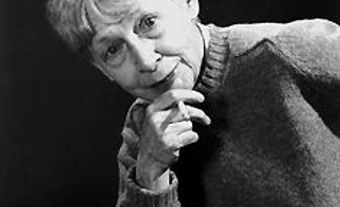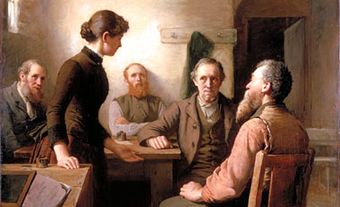Bharati Mukherjee grew up in India and Britain. She was educated in India (BA, University of Calcutta, 1959; MA, University of Baroda, 1961) and the US (MFA 1963, PhD 1969, University of Iowa). Mukherjee emigrated from the US to Canada in 1966. She taught at a number of universities in Canada and the United States, including McGill University and the University of California, Berkeley. Mukherjee and her husband, Clark Blaise, returned to the US in 1980. She explained in her 1981 essay, "An Invisible Woman," that she found that Canadian attitudes toward South Asian immigrants - particularly women - had grown increasingly intolerant during her years here.
Bharati Mukherjee's fiction powerfully and sensitively evokes the cultural tensions and torn identities that her South Asian protagonists suffer. In both North America and India, her characters live amidst the disjunctions of two very separate worlds and world views. Mukherjee published her first two novels while living in Canada: The Tiger's Daughter (1972) and Wife (1975). Her difficult experiences as an immigrant in Canada are also reflected in the themes of her 1985 short-fiction collection, Darkness.
Bharati Mukherjee's acclaimed joint autobiographical account of her year in India - Days and Nights in Calcutta, co-written with Clark Blaise - appeared in 1977. With Blaise, she also wrote The Sorrow and the Terror (1987), an account of Canada's worst terrorist attack, the 1985 Air India bombing.
Bharati Mukherjee's second book of short stories, The Middleman and Other Stories (1988), won the National Book Critics Circle Award. She continued her thematic exploration of women's experience of marriage, cultural identity, racism and immigration in novels such as Jasmine (1990), Desirable Daughters (2002) and The Tree Bride (2004).

 Share on Facebook
Share on Facebook Share on X
Share on X Share by Email
Share by Email Share on Google Classroom
Share on Google Classroom

